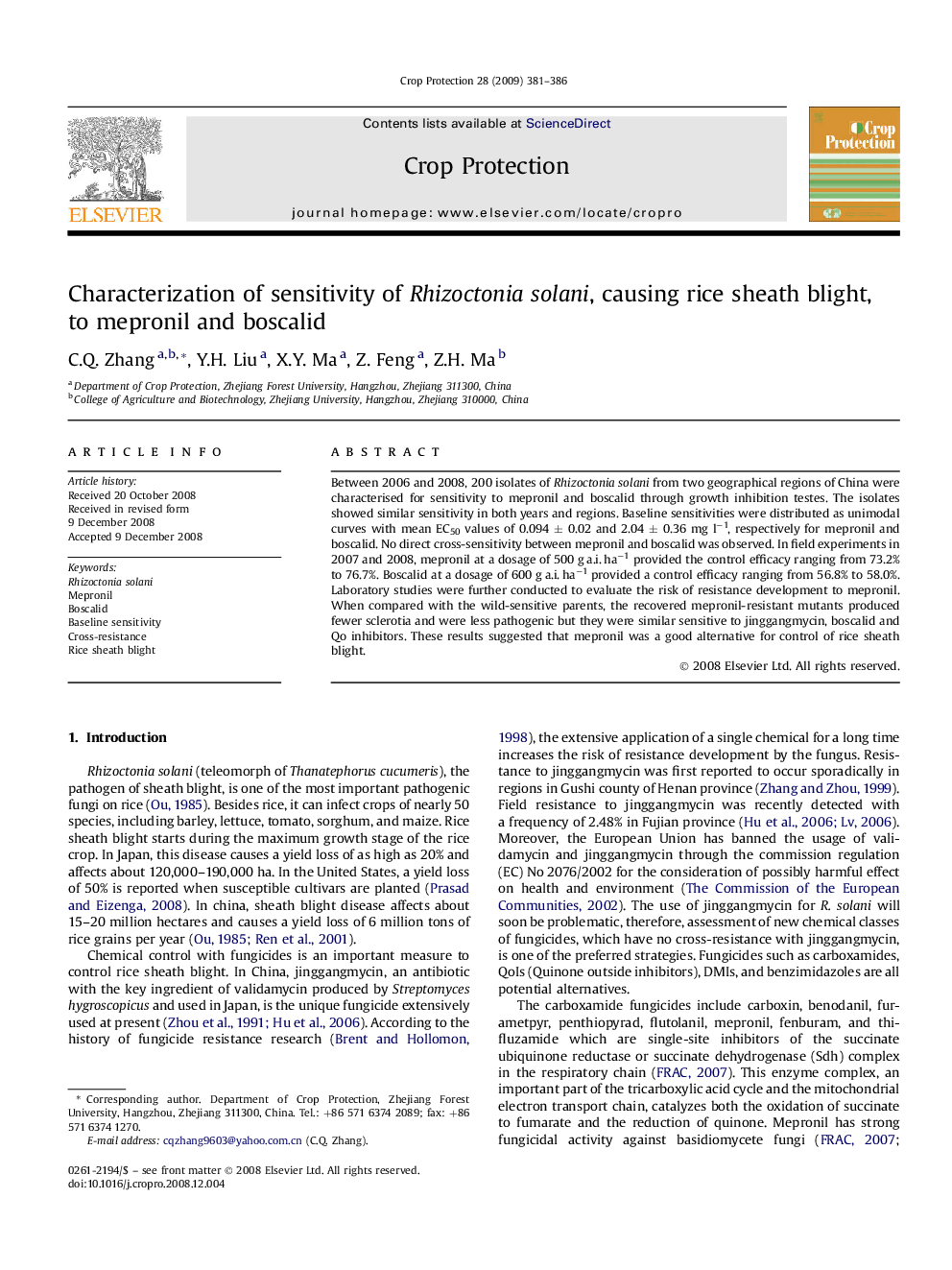| Article ID | Journal | Published Year | Pages | File Type |
|---|---|---|---|---|
| 4507444 | Crop Protection | 2009 | 6 Pages |
Between 2006 and 2008, 200 isolates of Rhizoctonia solani from two geographical regions of China were characterised for sensitivity to mepronil and boscalid through growth inhibition testes. The isolates showed similar sensitivity in both years and regions. Baseline sensitivities were distributed as unimodal curves with mean EC50 values of 0.094 ± 0.02 and 2.04 ± 0.36 mg l−1, respectively for mepronil and boscalid. No direct cross-sensitivity between mepronil and boscalid was observed. In field experiments in 2007 and 2008, mepronil at a dosage of 500 g a.i. ha−1 provided the control efficacy ranging from 73.2% to 76.7%. Boscalid at a dosage of 600 g a.i. ha−1 provided a control efficacy ranging from 56.8% to 58.0%. Laboratory studies were further conducted to evaluate the risk of resistance development to mepronil. When compared with the wild-sensitive parents, the recovered mepronil-resistant mutants produced fewer sclerotia and were less pathogenic but they were similar sensitive to jinggangmycin, boscalid and Qo inhibitors. These results suggested that mepronil was a good alternative for control of rice sheath blight.
